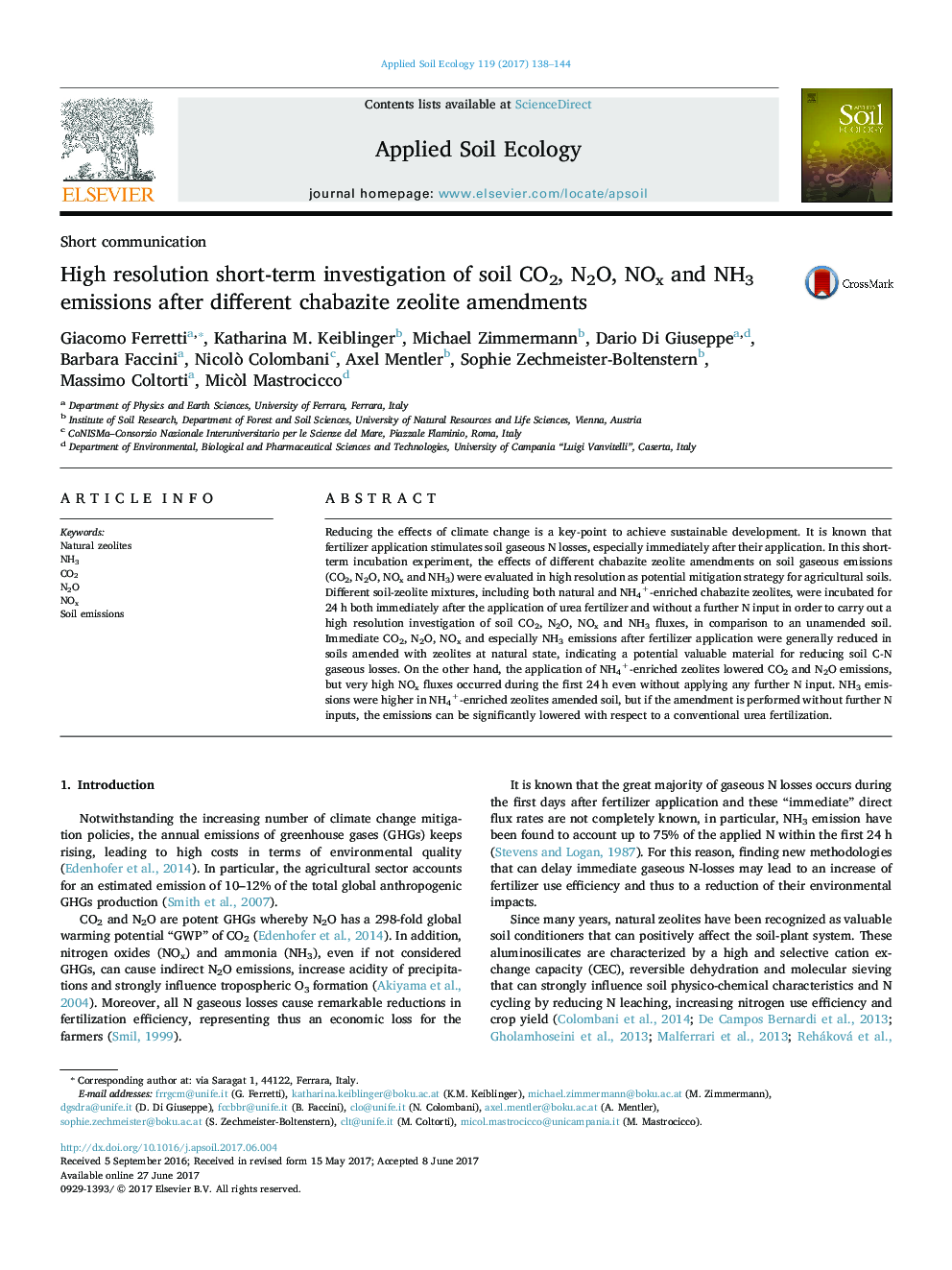| Article ID | Journal | Published Year | Pages | File Type |
|---|---|---|---|---|
| 5742602 | Applied Soil Ecology | 2017 | 7 Pages |
â¢Zeolites amendments effects on soil gaseous emissions were evaluated (over 24 h).â¢Amendments with natural chabazite zeolites reduced immediate gaseous emissions.â¢The N in NH4+-enriched zeolites was immediately available to soil microbial biomass.
Reducing the effects of climate change is a key-point to achieve sustainable development. It is known that fertilizer application stimulates soil gaseous N losses, especially immediately after their application. In this short-term incubation experiment, the effects of different chabazite zeolite amendments on soil gaseous emissions (CO2, N2O, NOx and NH3) were evaluated in high resolution as potential mitigation strategy for agricultural soils. Different soil-zeolite mixtures, including both natural and NH4+-enriched chabazite zeolites, were incubated for 24Â h both immediately after the application of urea fertilizer and without a further N input in order to carry out a high resolution investigation of soil CO2, N2O, NOx and NH3 fluxes, in comparison to an unamended soil. Immediate CO2, N2O, NOx and especially NH3 emissions after fertilizer application were generally reduced in soils amended with zeolites at natural state, indicating a potential valuable material for reducing soil C-N gaseous losses. On the other hand, the application of NH4+-enriched zeolites lowered CO2 and N2O emissions, but very high NOx fluxes occurred during the first 24Â h even without applying any further N input. NH3 emissions were higher in NH4+-enriched zeolites amended soil, but if the amendment is performed without further N inputs, the emissions can be significantly lowered with respect to a conventional urea fertilization.
